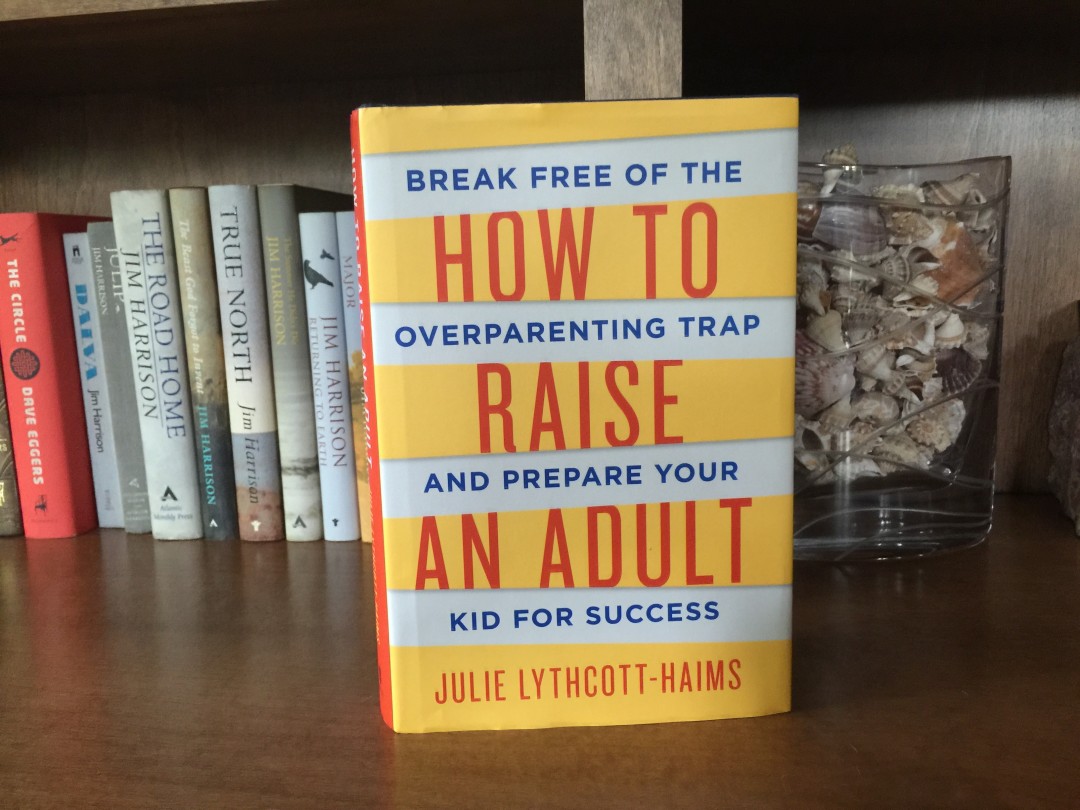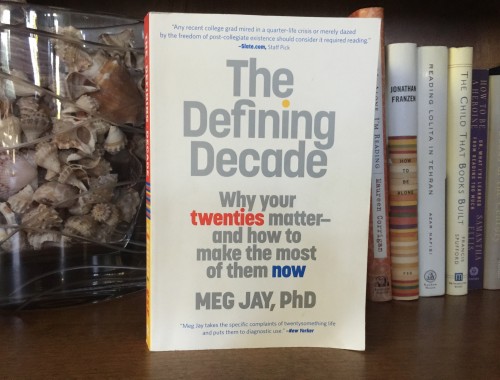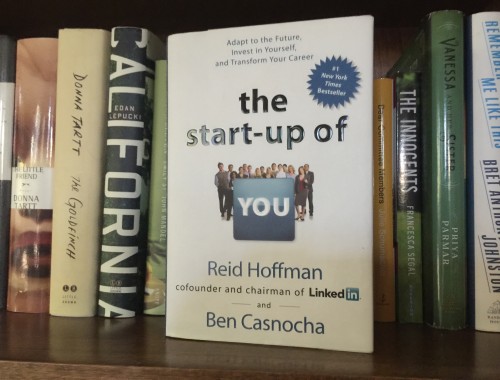With a subtitle of Break Free of the Overparenting Trap and Prepare Your Kid for Success, Julie Lythcott-Haims is focused on a parent audience, but she covers some ground that’s worthy of discussion in the Launch context. As a former Stanford University dean of freshmen she’s reporting from the front lines after a decade of watching very bright, academically successful students flail at life away from home.
In a chapter entitled We’re Hurting Their Job Prospects, she talks about how this mollycoddling plays out after graduation, quoting Teach for America’s general counsel:
“If you tell them to do A, B, C, and D, they are excellent at doing it, and they’re hardworking and dedicated as they do it. But if you say ‘Look,
we’re trying to get to D. We’re going to show you A and give you half of C. Go Innovate, solve it for yourself, ’ they really struggle. Their mind-set
is, ‘Tell me what the path is and I’ll follow it, even if it’s really hard. But strike out on my own and figure it out? That I can’t do.’”
I can second that experience. We’re a small studio and there just wasn’t time to provide the hands-on attention aspiring graphic designers and film editors needed to be productive. Internships would devolve into the use of a workstation and access to our Lynda.com subscription. So we stopped having interns. We get a lot of requests from students interested in film, and sometimes we’d have them on a shoot so they can see one day of a possible career. They all did everything they were asked to do on the shoot and did it well with a good attitude. But it can seem to the uninitiated that there’s a lot of downtime in filming. Despite advising them to keep their eyes open all day, almost every single one jumped on their phones throughout the shoot days. The real learning experience was missed because there is literally not a single moment of down time in a small documentary crew (at least not ours). The makeup artist is busy at a different time than the sound guy, who is busy when the gaffer is not. There’s always gear to haul from one room or location to the next, but the minute eyes went to the screen, any chance to learn was gone. Imagine an operating room on TV. Just because the surgeon is busy teaching the new resident, the nurse doesn’t get out his phone and start texting. Takeaway advice for you: If you are lucky enough to have an interview, internship, externship, or anything else, turn your phone off, put it away, and don’t turn it back on until you are leaving for the day. I swear this is an easy way to be the best intern in any given summer. It’s a low bar, I know.
Every practical thing you deal with on your own in college, from travel arrangements to apartment rentals and selecting classes all ends up with you gaining the skills to succeed on your own. That’s what employers value–getting to D with half the information you need. Employers won’t be telling you what’s on the test, or providing a checklist for success, BTW. Lythcott-Haims’ book also brings in considerable research showing you’ll feel more confident the more you are empowered to act independently and that starts a virtuous circle of its own.
Recommendation? Read the book, even if you’re the college student, not the parent. There’s a lot of great info here on how to be successful in the real world and some good info to fight off that unrepentant tiger parent, if needed.





No Comments